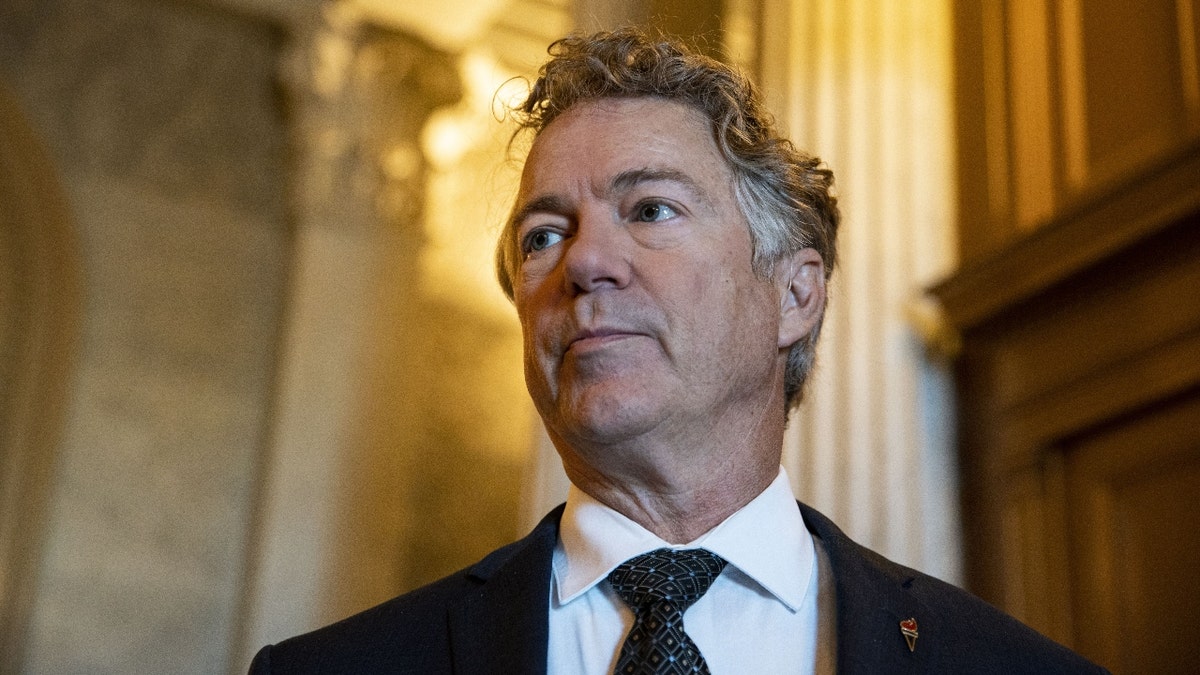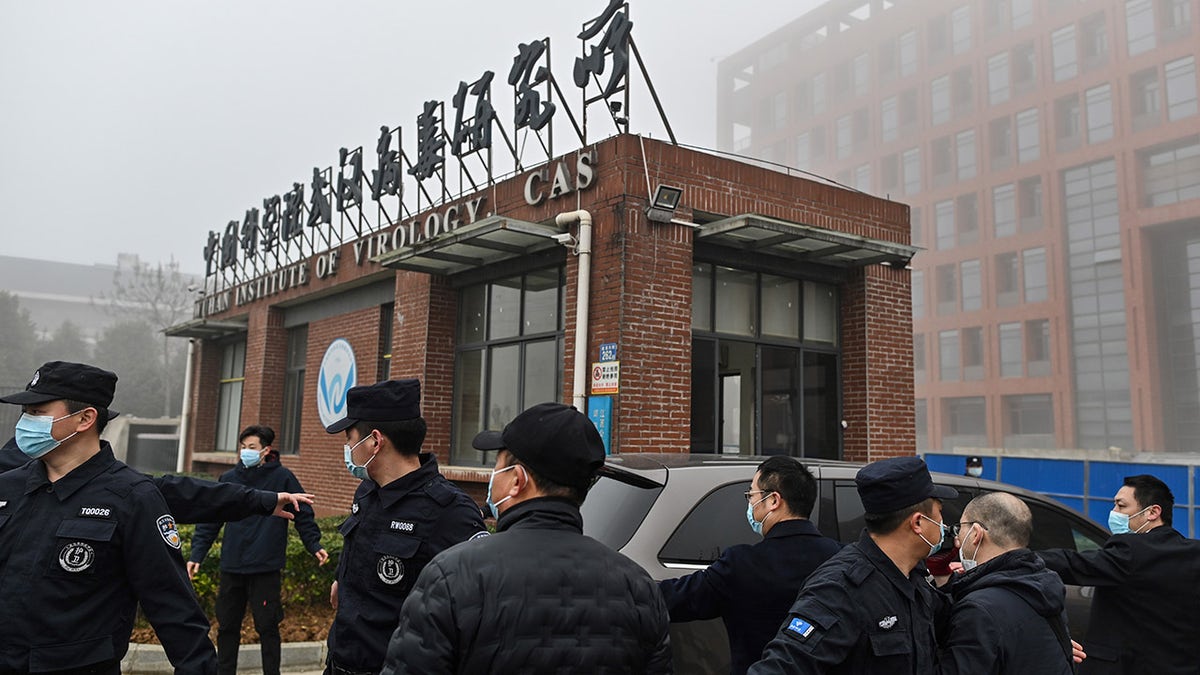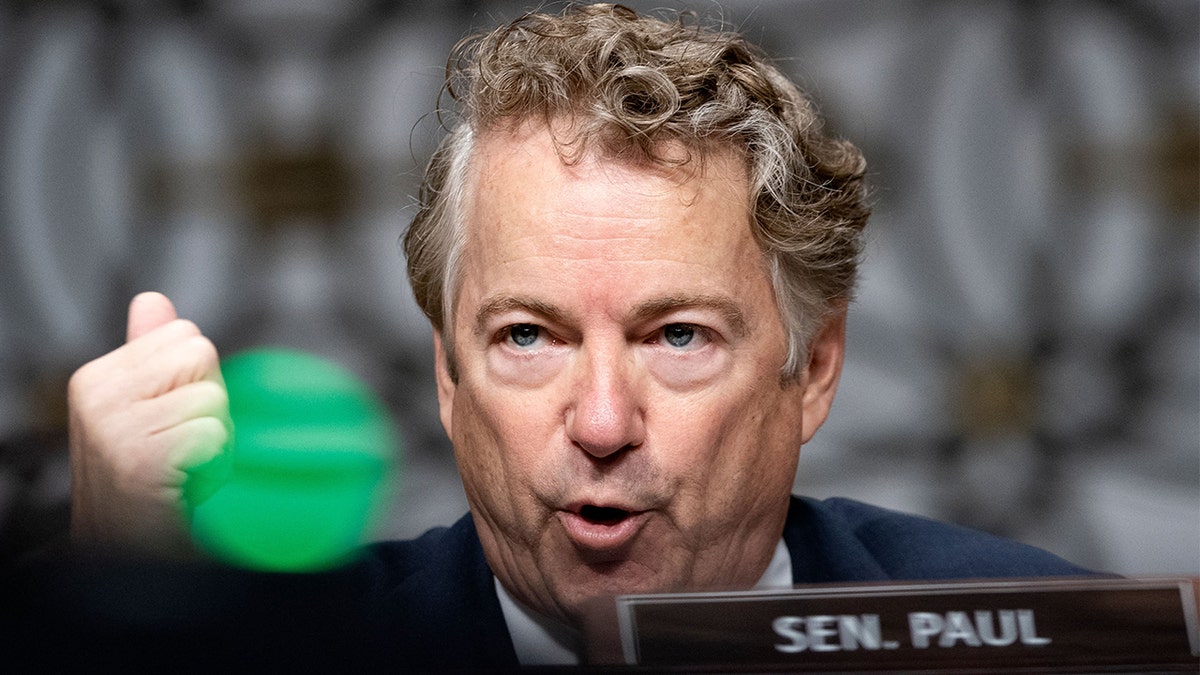Risky gain of function research is mired in secrecy after the coronavirus pandemic
Fox News State Department correspondent Benjamin Hall reports on the murky world of gain of function research after the Wuhan Institute of Virology in China is suspected of starting the pandemic.
FIRST ON FOX: Sen. Rand Paul, R-Ky., says he will advocate for an "international convention of civilized countries" to gather and discuss the dangers of gain-of-function research.
Paul has been one of few leaders in Congress pressing for a hearing on the origins of COVID-19. The National Institutes of Health (NIH) last year acknowledged its efforts to fund gain-of-function research on bats infected with coronaviruses at a lab in Wuhan, China, before COVID-19 broke out and forever altered life around the world.
"Not only do we need restrictions in our country," Paul told Fox News Digital in an interview of the research method. "I'm going to be advocating for an international convention of civilized countries to come together and discuss gain-of-function research and the potential harm it could cause on a global scale."
RAND PAUL: COVID EDICTS THAT MAKE NO SCIENTIFIC SENSE DESERVE A ‘MASSIVE BOYCOTT’
"The chances are that [COVID-19] came from the lab — and…we're up to approximately six to seven million people dead throughout the world now — and this with about 1% mortality. If the next virus that gets out has a 15% or 50% mortality…we essentially destroy the underpinnings of civilization," Paul said.

Sen. Rand Paul, a Republican from Kentucky, speaks with members of the media following a vote in the U.S. Capitol in Washington, D.C., on Tuesday, Jan. 11, 2022. (Al Drago/Bloomberg)
Gain-of-function research involves extracting viruses from animals to artificially engineer in a laboratory to make them more transmissible and deadly to humans. The purpose of such research is to let scientists get ahead of the curb in developing treatments for certain infectious diseases.
Demands for answers surrounding the origins of the virus, which is believed to have originated in Wuhan in November 2019, have led to calls for White House Chief Medical Adviser Dr. Anthony Fauci's resignation and a general feeling of distrust between some citizens and government leaders.
Fauci has previously denied U.S. involvement in gain-of-function research at a Wuhan research lab called the Wuhan Institute of Virology, which the World Health Organization (WHO) has investigated in its search for answers regarding COVID-19's origins.
However, a $600,000 grant from the National Institute of Allergy and Infectious Diseases (NIAID), which Fauci serves as director, went to a group called EcoHealth Alliance, which then paid the Wuhan lab to study the risk that bat coronaviruses could infect humans. NIH Acting Director Lawrence Tabak previously accused EcoHealth Alliance of not being transparent about the work that was taking place in the lab.

Members of the World Health Organization (WHO) team investigating the origins of the COVID-19 coronavirus arrive at the Wuhan Institute of Virology in Wuhan in China's central Hubei province on Feb. 3, 2021. (HECTOR RETAMAL/AFP via Getty Images)
For months in 2020, China blocked WHO investigators from entering Wuhan. The global health agency finally arrived in mid-January of 2021 and released initial findings a month later stating that it was "extremely unlikely" the virus came from a lab and advised "future studies." The organization said later in July 2021 that it would correct multiple errors in its initial report.
A May Wall Street Journal report citing previously undisclosed U.S. intelligence documents found some of the Wuhan Institute of Virology workers who fell ill in 2019 required hospital care, lending weight to what some have dubbed the "lab-leak theory." In an August 2021 statement, WHO admitted that the COVID-19 lab-leak theory was not "extremely unlikely" after all.
"I don't think it's over," Paul said of the political discussion surrounding COVID-19. "I think people ultimately are going to be very disappointed that Democrats didn't hold one hearing on the origin of the virus. I've been asking for a year for the two committees I'm on that can look into this — Homeland Security and the Health Committee — asking for a hearing on the origins of the virus. It really doesn't have to be partisan."

Sen. Rand Paul, R-Ky., questions Dr. Anthony Fauci, White House chief medical adviser and director of the NIAID, during a Senate Health, Education, Labor, and Pensions Committee hearing. (GREG NASH/POOL/AFP via Getty Images)
Paul added that even Democratic and apolitical scientists have come to him "worried about gain-of-function research since 2004."
CLICK HERE TO GET THE FOX NEWS APP
"And so there really are valid scientific arguments for why we should be worried about this kind of research, but also really…strikingly strong arguments [COVID-19] this coming from a lab now. And it's never going to be 100% certain, but the reason we should hear this is we're still doing this kind of research," Paul explained, citing a Washington Post op-ed from MIT Media Lab assistant professor Kevin Esvelt explaining the potential dangers of gain-of-function research.
The Kentucky senator does not think it is likely that he will be able to hold a hearing on the origins of COVID-19 until after the November 2022 midterm elections, if Republicans take control of the Senate.
Fox News' Andrew Mark Miller contributed to this report.






